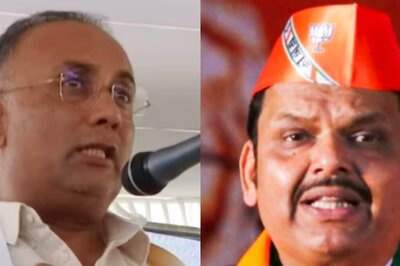
views
New Delhi: The global financial uncertainties forced the government in 2012 to finally show animal spirit in liberalising FDI policy amidst objections from Opposition parties with as many as seven sectors being further opened up during the period. The government liberalised FDI policy in sectors including multi-brand retail, single-brand retail, commodity exchanges, power exchanges, broadcasting, non-banking financial institutions (NBFCs) and asset reconstruction companies (ARCs).
During the 10-months of 2012, foreign direct investment (FDI) contracted by 33 per cent to $21 billion as against $31 billion in the same period in 2011. The government officials, however, expect the country to receive more FDI in 2013 in the wake of several important announcements. "We expect that 2013 will be good for FDI and India will be able to attract more foreign investments," an official in the Commerce and Industry Ministry said.
Sharing similar views, Crisil Chief Economist DK Joshi said the government will have to push for more reforms in order to get higher investments. "Year 2012 was not good due to international and domestic matters. But things are likely to improve in 2013," Joshi added.
To revive investors' interest in India in the wake of global financial uncertainties Prime Minister Manmohan Singh in June had said the nation should "reverse the climate of pessimism...Revive the animal spirit in the country's economy".
The government, which was severely criticised by industry for policy paralysis this year, opted for big-bang reforms and allowed politically-risky 51 per cent FDI in multi-brand retail and 49 per cent investment by foreign airlines in the aviation sector.
The slew of reforms included raising FDI cap in broadcasting from 49 per cent to 74 per cent and allowing foreign investment in power exchanges. Besides, it has also increased FDI cap to 74 per cent in the service providers like DTH in broadcasting sector. Foreign institutional investors (FIIs) were also allowed to invest up to 23 per cent in commodity exchanges without seeking prior approval of the government.
Among the decisions, FDI in multi-brand retail came in limelight as the government hard to strive hard to get the better of opposition in the Parliamentary debate that entailed voting on the issue. This decision will allow global retail giants like WalMart to open stores in India.
FDI ceiling in asset reconstruction companies has been increased to 74 per cent from 49 per cent, a move aimed at bringing more foreign expertise in the segment.



















Comments
0 comment